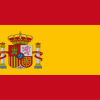Netherlands - Dutch Digitalisation Strategy 2.0
The Dutch Digitalisation Strategy 2.0 outlines a range of priorities for the upcoming years: artificial intelligence (AI), data science for social issues and economic growth, digital inclusion and skills, digital government, digital connectivity, digital resilience.
Digital skills as a topic is set as a high priority for both the labour market and wider society. The actions include efforts in the area of basic digital skills, digital inclusion, sustainable employability and lifelong learning, as well as the required retraining to safeguard the necessary skills and jobs of tomorrow.
Digital skills for citizens
- Helping people to cope with digitisation (encouraging the development of digital skills)
- Explaining the consequences of digitisation (digital awareness)
- Making digital services easier to use for everyone (improving government services)
Digital skills for the labour force
- Development of new digital skills in response to changing professions and tasks.
- Pilot projects with training and employment helpdesks efforts to encourage a culture of learning in the SME sector
- Exploration of a personalised digital portal offering training opportunities
- Facilitation of a more flexible range of adult education programmes and individual learning and development budgets
Digital skills for ICT specialists
- Knowledge institutions, education sector parties, government agencies and businesses expand the pool of ICT staff and knowledge as a part of the Human Capital Agenda ICT initiative.
- Collaborations between the business community and education sector through initiatives such as the Technology Pact, human capital agendas and Smart Industry action programme.
- Developing a coherent approach aimed at increasing the stay-rate of international students in the Netherlands.
Digital skills in education
- Teachers, school leaders and managers innovate by learning with each other and external parties;
- Digital literacy amongst pupils and teachers;
- Digital learning resources that work for users;
- Secure, reliable and future-proof infrastructure;
- Structural attention for the ethics of educational digitisation.
Strategy Details
Public individual learning and development budget implemented by the UWV (Employee Insurance Agency.)
The government is leading the priorities defined within the Strategy, working with entrepreneurs, the scientific community regional authorites , civil society organisations and subnational authorities to achieve results.



